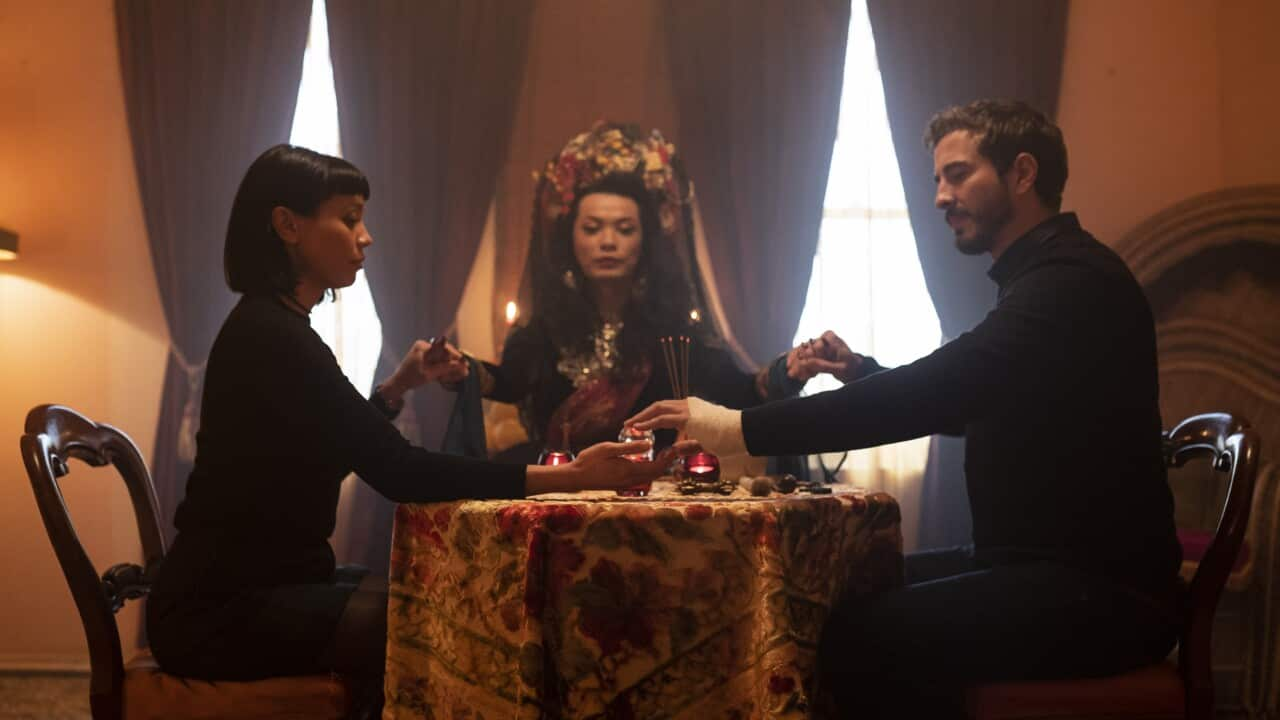Two years ago, I was breakfasting with Joy, my Airbnb host in Waihi, New Zealand when she pulled out her family photo album.
Using the album as a visual prompt, Joy took us through her family history. She explained that her ex-husband was Chinese and after they divorced, she didn’t bother reverting back to her maiden name. Joy was used to people being confused by her Chinese surname which contradicted her Caucasian appearance.
“Here is my son on his wedding day,” Joy said, proudly.
“He… looks nice,” I replied politely, not knowing what else to say.
“Of course! Half-Asian, half-Caucasian… have to be good-looking,” my dad added knowingly, tapping energetically on the photo for emphasis.
In Malaysia, where my dad is from, people with Eurasian ancestry are highly sought after in the media, entertainment and beauty industry. Walking through a mall in Malaysia, you will inevitably be greeted by smiling models, who have a blend of Asian and Caucasian features, on billboards and banners.
Notably in 2018, two 24-year-old Australian women took the Miss Universe pageant by storm. Francesca Hung, of half-Chinese and half-Irish ancestry, represented Australia and placed in the top 20 against a bevy of 93 other beauties. Cairns-born and bred Catriona Gray, of half-Filipino and half-Scottish ancestry, represented the Philippines and was ultimately crowned Miss Universe 2018. Hung and Gray’s success at the international Miss Universe beauty pageant added to the mythology vocalised by my dad that Eurasians “have to be good-looking”.
The extraordinary beauty of mixed-race, Eurasian people is not just constantly reinforced in the media and entertainment industry. In literature, Eurasian people are depicted as having breathtaking beauty.
In Benjamin Law’s The Family Law, Law rhapsodises about the “exotic” fusion of Asian and Caucasian features in a Eurasian brother and sister duo who have: “…inherited the high Oriental cheekbones of their Chinese mother and the regal Norse forehead and nose of their Scandinavian father. The combination made them obscenely, enviably beautiful… Looking at them made you feel as though you were bearing witness to the next stage of human evolution, a stage to which you hadn’t been invited.”
In Adeline Yen Mah’s Falling Leaves, Mah effuses about her half-French, half-Chinese stepmother whose: “…features were an excellent combination of Chinese delicacy and French sensuality. Her face was oval, with a white, porcelain complexion. She also had lustrous, large, round, dark eyes, fringed with long lashes. And her head was crowned with thick, silky, jet black hair.”
I attended high school with a gorgeous girl named Amanda. We all admired her beauty. We were never jealous of her because we were too busy being awestruck by her looks.
“Whoa, Amanda is so pretty,” a classmate said.
“It’s because she’s half-German, half-Chinese,” said another.
“Oh, no wonder!”
Stephanie, overhearing our conversation, chimed in: “I’m half-Chinese and half-German too… do you think I’m pretty?”
“Of course!” we all chorused unconvincingly, before immediately going back to raving about Amanda’s unworldly beauty.
Recalling this lunchtime high school conversation, I realise now that our admiration of Amanda’s mixed-race features might have made Stephanie feel insecure. Stephanie shared the same racial ancestry as Amanda but was never lavished with the same compliments.
While most young women experience some insecurity with their looks, many Eurasian women feel an intense, hyper pressure to be beautiful.
It becomes an unhealthy and sad combination when society heavily fetishises the beauty of mixed-race people and then mixed-race individuals internalise the message that they too should be astonishingly attractive.
I have seen first-hand how toxic the extremely high standard of beauty foisted upon mixed-race people can be. My closest friend, who is half-Filipino and half-Sri Lankan, used to pray to God every night to make her look more white – she prayed for fairer skin and a narrower nose.
In r/PlasticSurgery, a Reddit thread, many posts are from women of Eurasian ancestry asking what procedure they should get done because they are unhappy with their more Asian-looking features such as their single eyelids or broad noses.
One reddit user, of mixed-Chinese and Caucasian ethnicity, writes that she wants plastic surgery because she is “deeply insecure about her looks” and “finds something to hate” every time she looks in the mirror.
It is beyond concerning that on top of facing racial identity issues, many Eurasian people are saddled with the stereotype that they “have to be good-looking”.
Three years from now, I plan to try having children with my part-Italian partner. I hope that my future part-Chinese, part-Italian children do not feel any unnecessary pressure to be beautiful or, for that matter, good at maths.
In the past, I have felt uncomfortable when well-meaning friends see pictures of my partner and me and proceed to coo over how cute they expect our future children to be. It is odd to have people objectifying our unborn children.
Insight episode ‘Growing Up Mixed Race’ airs on Tuesday 28 July at 8.30pm and is available for streaming at SBS On Demand from that night.







